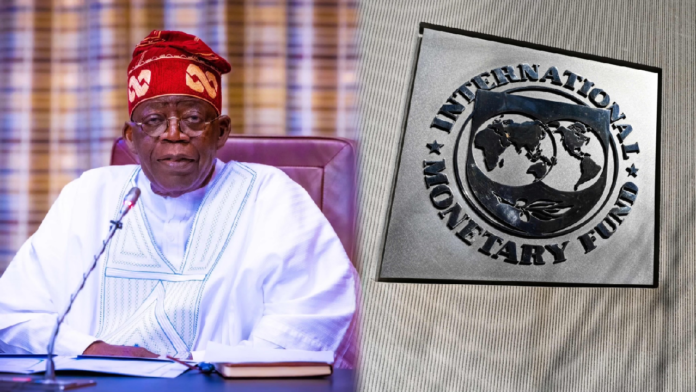The International Monetary Fund (IMF) has downgraded the economic growth outlook for Nigeria a second time this year to 2.9 percent, and says it sees a stable increase in growth for Sub-Saharan Africa to around 4.2 percent in 2025.
The IMF in April had projected Nigeria’s 2024 growth forecast to be 3.3 percent, but lowered it to 3.1 per cent in July.
On Tuesday, the IMF lowered Nigeria’s economic growth forecast, citing insecurity, impact of floods and lower-than-expected activity in the first half of the year.
This is according to the IMF’s latest World Economic Outlook (WEO) update report for October 2024, released on Tuesday during the IMF/World Bank meetings in Washington, United States.
The IMF in the report also stated that global growth is projected to remain unchanged at 3.2 per cent in 2024 and 2025, as Inflation recedes.
The report said though the projection was in line with the July and April 2024 WEO, there had been notable revisions beneath the surface since the April WEO.
According to the report, low-income and developing economies have seen sizable downside growth revisions, often tied to disruptions to production and shipping of commodities, especially oil, conflicts, civil unrest, and extreme weather events.
“These have been compensated for by upgrades to the forecast for emerging Asia, where surging demand for semiconductors and electronics, driven by significant investments in artificial intelligence has bolstered growth.”
It said in advanced economies, growth in the United States was strong, at 2.8 per cent in 2024, but will revert toward its potential in 2025.
The report said for advanced European economies, a modest growth rebound was expected in 2025, with output approaching potential.
For emerging markets and developing economies, it said the growth outlook was very stable around 4.2 per cent in 2024 and 2025, with continued robust performance from emerging Asia.
“Five years from now, global growth should reach 3.1 per cent, a mediocre performance compared with the prepandemic average,” the report states.
The report showed that there was global disinflation even though service price inflation persists in some countries.
“After peaking at 9.4 per cent year-on-year in the third quarter of 2022, we now project headline inflation will fall to 3.5 per cent by the end of next year.
“This is slightly below the average during the two decades before the pandemic.
“In most countries, inflation is now hovering close to central bank targets, paving the way for monetary easing across major central banks,” it added.
The report said the return of inflation near central bank targets paved the way for a policy triple pivot which would provide the much-needed macroeconomic breathing room, at a time when risks and challenges remain elevated.
“The first pivot on monetary policy is underway already. Since June, major central banks in advanced economies have started to cut policy rates, moving toward a neutral stance.
“This will support activity at a time when many advanced economies’ labor markets are showing signs of cooling, with rising unemployment rates.
“Lower interest rates in major economies will ease the pressure on emerging market economies, with their currencies strengthening against the U.S. dollar and financial conditions improving.
“This will help reduce imported inflation, allowing these countries to pursue their own disinflation path more easily.”
The report said the second pivot was on fiscal policy and would require countries to stabilise debt dynamics and rebuild much-needed fiscal buffers.
“The more credible and disciplined the fiscal adjustment, the more monetary policy can play a supporting role by easing policy rates while keeping inflation in check.
“The pace of adjustment should be tailored to country-specific circumstances.”
It said the third pivot and the hardest was towards growth-enhancing reforms.
The report said structural reforms were necessary to lift medium-term growth prospects, but support for the most vulnerable should be maintained
It said for reforms to be successful and socially accepted, there was a need to build trust between government and citizens.
“Building trust between government and citizens, a two-way process throughout the policy design and the inclusion of proper compensation to offset potential harms, are essential features.
The report said that multilateral cooperation was needed more than ever to accelerate the green transition and to support debt-restructuring efforts.
(NAN)



